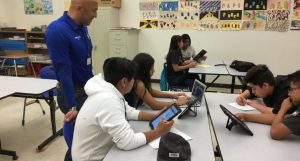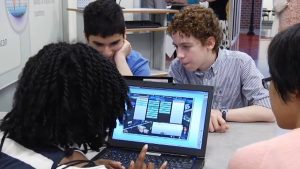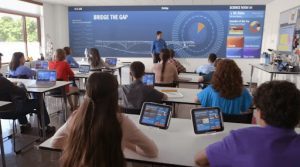The Evolution of School Education and the Future of K-12 Learning
BEST CAREER COUNSELLOR FOR STUDENTS IN DELHI NCR
School education has long been the foundation of intellectual and social development, shaping the future of individuals and society as a whole. From the early stages of learning to the completion of primary and secondary education (K-12), the education system has undergone significant transformations. Today, K-12 education is an integral part of the growth and development of children, setting the stage for lifelong learning. As we explore school education in its current form, it’s essential to understand its evolution, the challenges it faces, and the exciting future ahead.
Top career counseling for students in North Delhi: Rohini, Pitampura, and Shalimar Bagh
The Foundation of K-12 Education
The term K-12 refers to the primary and secondary educational stages, encompassing kindergarten through 12th grade. The origins of this structure can be traced back to the early 19th century when education systems began to formalize in Western countries. Before this, education was primarily provided by religious institutions, private tutors, or in informal settings. However, with the rise of industrialization and the need for a skilled workforce, public education systems became more standardized.
In the United States, the concept of a public school system became prominent in the 19th century. It was during this period that laws mandating education for children were introduced, ensuring that young people received basic education in subjects like reading, writing, and arithmetic. This development created the foundation for modern K-12 education.
Best career counseling services in South Delhi: Hauz Khas, Saket, and Greater Kailash
The Changing Landscape of K-12 Education
Over the past century, K-12 education has evolved significantly, responding to the changing needs of society and the workforce. The industrial revolution and the growth of the economy required new skills and knowledge, prompting schools to place more emphasis on subjects like science, technology, engineering, and mathematics (STEM). These subjects became critical to preparing students for an increasingly technical and globalized world.
In the mid-20th century, the introduction of technology began to reshape how schools operated. The early introduction of television and later computers in the classroom revolutionized teaching and learning. By the late 20th century, computers became a central component of education, allowing for the growth of the internet and online learning platforms. These technological advances not only changed how students learned but also provided them with access to a wealth of information that was previously unimaginable.
The Digital Transformation of Education
The 21st century has brought a digital revolution that has transformed nearly every aspect of education. Technology is no longer an optional supplement; it is a central pillar of the learning experience. With the advent of digital tools, educational content has become more dynamic, interactive, and accessible. Virtual classrooms, digital textbooks, and e-learning platforms have allowed students to engage with learning materials in new ways.
The use of artificial intelligence (AI) in K-12 education has also begun to take shape. AI-driven tools can assess a student’s progress, recommend personalized learning paths, and help teachers identify areas where students may be struggling. This level of customization and adaptability in the learning process has the potential to revolutionize education by addressing the unique needs of every student.
The Rise of Personalized Learning
One of the most significant shifts in modern K-12 education is the move toward personalized learning. Unlike the traditional “one-size-fits-all” model, personalized learning tailors the educational experience to meet the individual needs, interests, and learning styles of students. Advances in technology, combined with a growing understanding of how children learn best, have paved the way for this approach.
In personalized learning environments, students have more control over their pace and how they engage with learning content. Adaptive learning platforms adjust to a student’s skill level, providing immediate feedback and resources to help them progress. Teachers, in turn, can provide more targeted support based on the specific needs of each student, rather than adhering strictly to a set curriculum.
Moreover, personalized learning helps foster a more engaging and motivating environment, as students are empowered to take charge of their education. This can lead to increased student success and greater enthusiasm for learning.
Best career counseling services in West Delhi: Janakpuri, Rajouri Garden, and Punjabi Bagh
The Importance of Social and Emotional Learning (SEL)
As schools continue to adapt to the changing demands of the 21st century, there has been a growing recognition of the importance of social and emotional learning (SEL). SEL programs teach students essential life skills such as emotional regulation, empathy, teamwork, and conflict resolution. These skills are vital not only for academic success but also for personal growth and social well-being.
Incorporating SEL into the curriculum helps students develop the emotional intelligence needed to navigate the complexities of modern life. It also plays a key role in fostering inclusive and supportive school environments, where students feel valued and understood. As mental health and well-being have become central to educational discussions, SEL is expected to continue to play a prominent role in K-12 education moving forward.
The Challenges Facing K-12 Education
Despite the many advances in K-12 education, there are still significant challenges that need to be addressed. One of the most pressing issues is the achievement gap between different socio-economic groups. Students from lower-income families often have limited access to high-quality education and resources, which can hinder their academic progress.
Another challenge is the teacher shortage. As the demand for skilled educators increases, schools are struggling to recruit and retain qualified teachers, especially in underserved areas. Teacher burnout is also a growing concern, as educators face increasing pressures to meet diverse student needs while adhering to high academic standards.
Furthermore, the digital divide remains a critical issue. While technology has become a central component of modern education, not all students have equal access to digital tools and the internet. This disparity can exacerbate existing inequalities in education, especially during times when remote learning is necessary, as seen during the COVID-19 pandemic.
The Future of K-12 Education
Looking ahead, the future of K-12 education holds exciting possibilities. As technology continues to evolve, it will likely play an even more significant role in shaping how students learn. Virtual reality (VR) and augmented reality (AR) are already beginning to make their way into classrooms, providing immersive learning experiences that were once the stuff of science fiction. These technologies have the potential to revolutionize fields such as science education, history, and even arts education.
Additionally, there is growing interest in the integration of interdisciplinary learning. Rather than teaching subjects in isolation, schools are increasingly adopting project-based learning approaches that combine multiple disciplines, allowing students to see the real-world connections between subjects. This approach encourages critical thinking, collaboration, and problem-solving skills, all of which are crucial for success in today’s complex world.
Another exciting development in the future of K-12 education is the rise of global learning networks. Through online platforms and international partnerships, students can collaborate with peers from different countries and cultures. This global exchange of ideas and perspectives enriches the educational experience and prepares students to thrive in a globalized society.
Best career counseling services in East Delhi: Laxmi Nagar, Preet Vihar, and Mayur Vihar.
Conclusion
K-12 education has come a long way since its inception, and the journey is far from over. As we look toward the future, the integration of technology, personalized learning, and social-emotional development will continue to shape the educational experience. Despite the challenges that remain, there is no doubt that the next generation of learners will be equipped with the skills and knowledge they need to navigate the complexities of the modern world.
By embracing change and adapting to the needs of students, educators, and society at large, K-12 education has the potential to create a brighter and more inclusive future for all learners.











